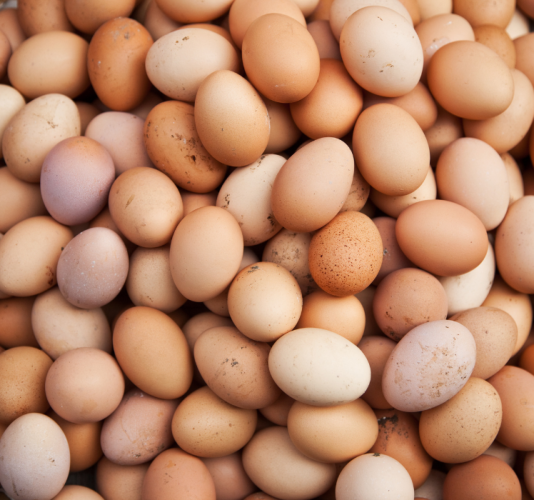News
23.04.2025 - Foods

FreshChickenEggs:Residues,Contaminants,andHygieneTipsatAGlance
The current data from the National Report on Pesticide Residues in Food for the year 2023 as well as for the first three quarters of 2024 show that there are no exceedances of the legal maximum residue levels in chicken eggs.
However, special attention is given to free-range eggs. Here, contamination with dioxins and polychlorinated biphenyls (PCBs) can occur. In four to seven percent of the samples tested, the maximum levels of these substances were exceeded. Eggs from barn or organic farming performed significantly better: Exceedances were not detected or only to a very small extent (≤ 2%).
The risk of bacterial contamination - for example with salmonella - is also low in fresh eggs. According to the Zoonoses Monitoring 2020, salmonella could not be detected on the shell of eggs from packaging stations or in retail.
The Federal Office of Consumer Protection and Food Safety (BVL) advises, just in time for Easter, to avoid direct mouth contact when blowing out eggs. Thorough cleaning of the eggs is also recommended.
At BAV Institute, we regularly conduct microbiological tests, including for salmonella. We provide you with quick and reliable results. In our Tentamus laboratories, we also carry out analyses for dioxins, polychlorinated biphenyls (PCBs), and pesticide residues.
Our customer advisors are very happy to assist you with any questions you may have.
Sources:
https://www.bvl.bund.de/SharedDocs/Pressemitteilungen/01_lebensmittel/2025/2025_04_15_PM_Huehnereier.html
